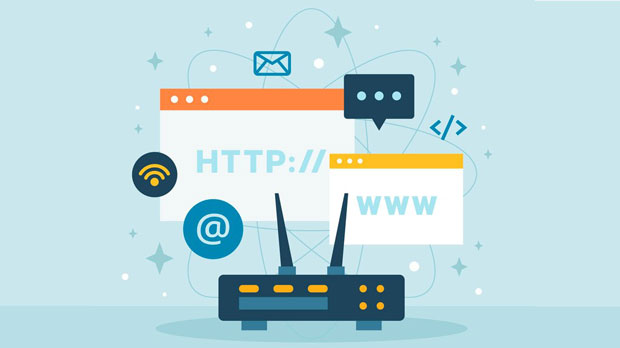In the modern world of residential internet services, maintaining privacy is a top priority for many users. Both Curl Proxy and PYPROXY are popular tools for safeguarding privacy, each offering a unique set of features and advantages. This article will provide a detailed comparison of the privacy protection capabilities of Curl Proxy and PyProxy, with a focus on their usage in residential services. By examining these two proxies, we will explore the strengths and weaknesses of each, ultimately offering guidance to users on which might be the better choice for enhancing privacy in their residential internet activities. Introduction to Curl Proxy and PyProxyCurl Proxy and PyProxy are two of the most commonly used proxies in the realm of privacy protection for internet users. Both of them offer solutions to mask a user’s IP address, thereby enhancing privacy and security. However, each of these tools has distinct characteristics and methodologies that make them suitable for different types of users, especially when it comes to residential services. Understanding the differences between these two proxies is crucial for users who value privacy and are looking for a reliable and effective way to protect their online activities.What is Curl Proxy?Curl Proxy, often utilized for its versatility, is a tool that allows users to route their internet traffic through a secure proxy server. By masking the original IP address of the user, Curl Proxy provides a layer of anonymity and ensures that the user’s browsing activity is not easily traced. This makes it an attractive option for those who are looking to enhance their privacy while accessing residential services.One of the primary advantages of Curl Proxy is its simplicity. It is easy to integrate into various systems and can be used to access residential services without much configuration. However, despite its ease of use, it does have limitations in certain areas, such as speed and support for advanced privacy protocols.What is PyProxy?PyProxy, on the other hand, is a Python-based proxy that provides more flexibility and control over internet traffic. It allows users to route traffic through proxy servers using a range of protocols, including HTTP, SOCKS, and others. PyProxy is especially useful for those who require more robust privacy protections and are willing to engage with more advanced configurations.For residential services, PyProxy offers enhanced security features, including encrypted connections, which help in protecting sensitive data. It also supports more complex use cases, such as accessing geo-restricted content or hiding the user’s identity across multiple devices. However, PyProxy can be more difficult to set up and may require a higher level of technical knowledge compared to Curl Proxy.Privacy Protection: Curl Proxy vs. PyProxyWhen it comes to privacy protection, both Curl Proxy and PyProxy offer essential tools for users seeking to protect their identity and online activities. However, their effectiveness depends on how they are configured and used in residential services.1. IP Masking and AnonymityBoth Curl Proxy and PyProxy excel in masking the user’s real IP address. By routing internet traffic through proxy servers, these tools prevent websites and services from tracking the user's location and online behavior. This is crucial for those who are concerned about privacy, especially in residential environments where internet activity is often shared among family members or roommates.Curl Proxy is effective in providing anonymity for basic internet activities, but it may not offer the same level of sophistication as PyProxy when it comes to maintaining long-term anonymity. PyProxy, with its more advanced features, is designed to better manage multiple sessions and maintain anonymity over extended periods.2. Encryption and Data SecurityIn terms of data security, PyProxy stands out as the more secure option. PyProxy allows for encrypted connections, ensuring that the data exchanged between the user and the internet is protected from potential eavesdroppers. This is particularly important for residential users who may be engaging in online banking, shopping, or other sensitive activities.Curl Proxy, while providing basic encryption features, does not offer the same level of security as PyProxy. For residential users who are more concerned about potential security breaches, PyProxy’s encryption capabilities provide a much-needed layer of protection against hackers and third-party surveillance.3. Speed and PerformanceWhen comparing the speed and performance of both proxies, Curl Proxy generally offers better speeds. This is due to its simpler structure and fewer configurations, which means there is less processing overhead. For users who prioritize fast and efficient internet connections, Curl Proxy is a more suitable choice.PyProxy, due to its more complex configuration options and enhanced security features, may experience slightly reduced speeds. The added encryption and security protocols can sometimes slow down the connection, especially when accessing residential services that require low latency.4. Advanced Features and CustomizationPyProxy offers a wide range of advanced features and customization options. For users with more specific needs—such as accessing restricted content, managing multiple proxy sessions, or utilizing advanced protocols—PyProxy provides the flexibility to cater to these requirements. It allows users to customize how their internet traffic is routed, providing greater control over their online presence.In contrast, Curl Proxy is more straightforward and offers fewer customization options. While this simplicity is appealing to many users, those who require more advanced configurations may find it lacking in features.5. Usability and SetupFor residential users who are not highly technical, Curl Proxy is the more user-friendly option. It is easier to set up and integrate into existing systems, making it a good choice for those who want a quick and simple way to enhance their privacy without delving into complex configurations.PyProxy, on the other hand, requires more technical knowledge. Its setup process can be challenging for beginners, but for those who are comfortable with Python and advanced configurations, it offers a powerful tool for maintaining privacy.Conclusion: Which Proxy is Best for Residential Services?Both Curl Proxy and PyProxy offer essential privacy protection features, but the choice between the two ultimately depends on the specific needs of the user. If you are a residential user looking for a straightforward and easy-to-use tool for basic privacy protection, Curl Proxy is a solid choice. It offers simplicity, speed, and reliable IP masking, making it suitable for general online activities.However, if you are looking for a more secure, customizable solution with advanced features and the ability to manage multiple sessions or encrypted traffic, PyProxy is the better option. Its robust security protocols and flexibility make it ideal for users who require stronger privacy protections and are willing to invest time in learning how to use it effectively.Ultimately, both proxies have their strengths and weaknesses, and understanding these differences will help users make an informed decision about which tool best suits their needs for residential services.
Sep 04, 2025



































































